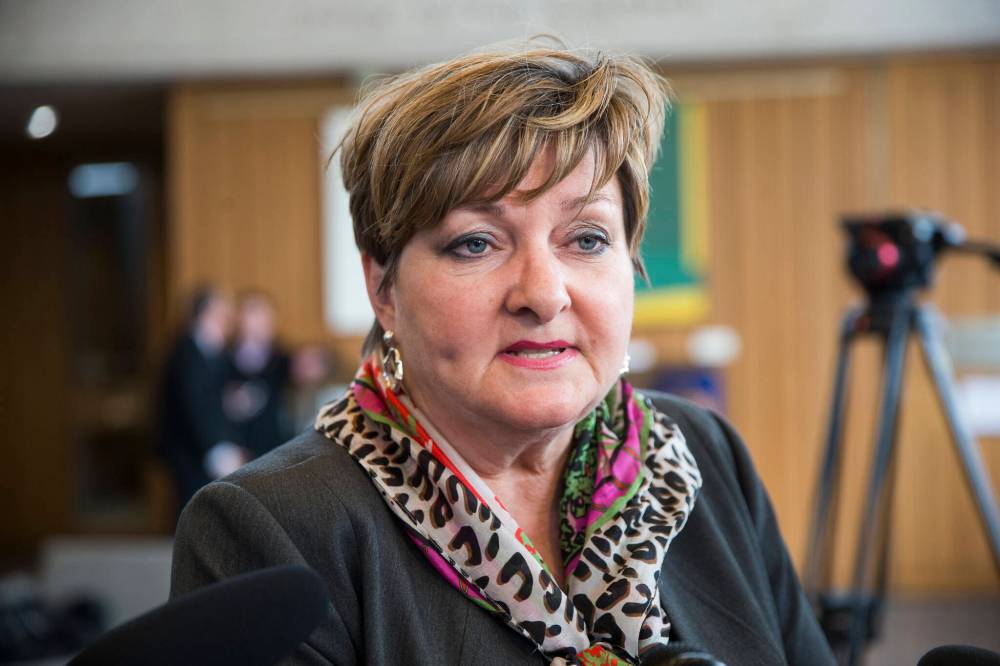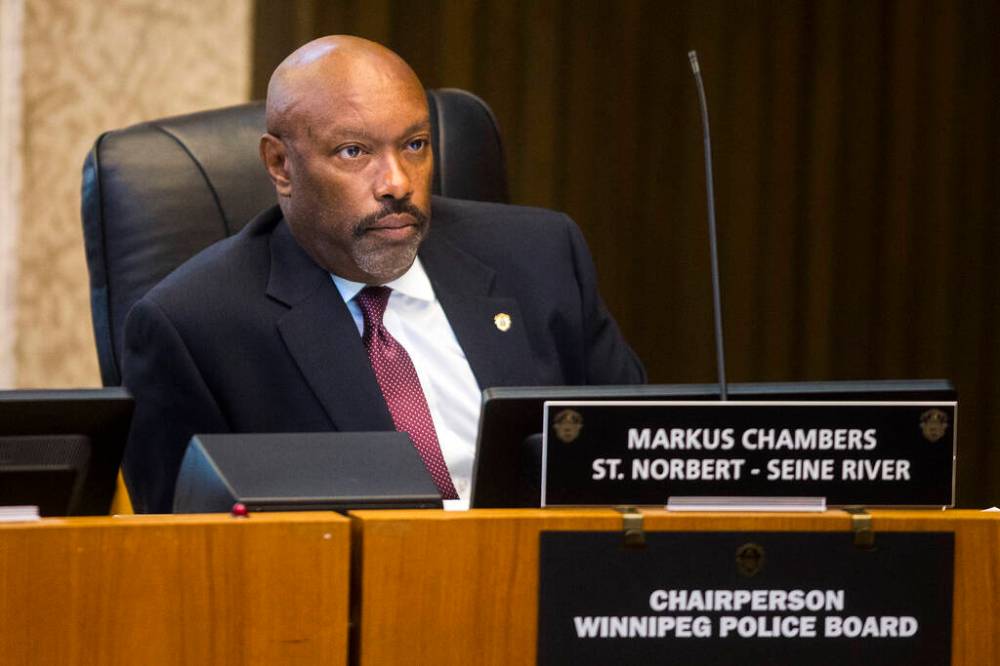Lukes pushes to cap civic staff remote workdays
Advertisement
Read this article for free:
or
Already have an account? Log in here »
To continue reading, please subscribe:
Monthly Digital Subscription
$1 per week for 24 weeks*
- Enjoy unlimited reading on winnipegfreepress.com
- Read the E-Edition, our digital replica newspaper
- Access News Break, our award-winning app
- Play interactive puzzles
*Billed as $4.00 plus GST every four weeks. After 24 weeks, price increases to the regular rate of $19.00 plus GST every four weeks. Offer available to new and qualified returning subscribers only. Cancel any time.
Monthly Digital Subscription
$4.75/week*
- Enjoy unlimited reading on winnipegfreepress.com
- Read the E-Edition, our digital replica newspaper
- Access News Break, our award-winning app
- Play interactive puzzles
*Billed as $19 plus GST every four weeks. Cancel any time.
To continue reading, please subscribe:
Add Free Press access to your Brandon Sun subscription for only an additional
$1 for the first 4 weeks*
*Your next subscription payment will increase by $1.00 and you will be charged $16.99 plus GST for four weeks. After four weeks, your payment will increase to $23.99 plus GST every four weeks.
Read unlimited articles for free today:
or
Already have an account? Log in here »
Hey there, time traveller!
This article was published 11/05/2022 (1254 days ago), so information in it may no longer be current.
A call to limit the number of days City of Winnipeg staff can work from home and scrutinize the impact remote work has on civic services is up for debate at city hall.
While approximately 1,800 of 10,400 staff have worked from home at least part-time during COVID-19, the city revealed details of a new formal flexible workplace plan to employees and elected officials this week.
Coun. Janice Lukes fears the plan rushes to make a major permanent change.

She’s calling for the executive policy committee to order an 18-month pilot project that allows employees to work remotely for a maximum of two days per week on a regular basis. The motion was unanimously supported by council’s innovation and economic development committee Wednesday.
It also calls for a review of the impact of the flexible workplace program on productivity and service delivery.
“This is a very big change for the City of Winnipeg workforce and I think we should take… baby steps to it before we jump in completely offering five days per week work flex. I just feel I need a level of accountability,” said Lukes.
The motion, which still requires EPC approval, also calls for the public service to set a goal for the changes to have “no negative impact on the downtown economy.”
Small downtown businesses have suffered, many shutting down, after foot traffic dwindled to a fraction of previous levels during the pandemic. Many downtown workers are still working remotely more than two years later.
The city needs to set an example by bringing back as many of its downtown staff as possible, Lukes said.
“I think we should be looking at as many avenues as possible to get people downtown. Sometimes we have to make a bit of a sacrifice to help out downtown until we get (more) people living there,” she said.
The city must be careful to retain skilled workers, so some work-from-home options are likely needed, Coun. Markus Chambers told the media. He agreed with Lukes that the impact on services must be carefully monitored.
“We want to make sure there is some rigour behind any program that sets to have people work remotely (to) still hold them accountable for the work that they need to do on behalf of the citizens of Winnipeg,” said Chambers.
The recovery of the city centre does depend on the return of workers, at least part-time, said Kate Fenske, chief executive officer of Downtown Winnipeg Business Improvement Zone.
“It is important not to rush into any permanent change or shift to how we operate as a city immediately without figuring out what all the risks and the benefits are. I think going five days a week (remote work) goes too far. The downtown is a critical component and a piece of our city’s success,” said Fenske.
Michael Jack, city chief administrative officer, said the current plan doesn’t prescribe a minimum number of days staff must work at the office, though he expects few would be eligible to work remotely full-time.
“From my discussions with our senior management team, I do think five days remote every week would be extremely rare.”

Jack will seek more detail about the calls to impose add an 18-month pilot project and a two-day-per-week maximum for remote hours before he weighs in on those ideas. He called it “somewhat unusual” for a political motion to dictate a human resources decision.
The city’s current remote work plan offers a reasonable path forward that balances the need to attract and retain staff without sacrificing service levels, Jack said.
“Most of the city employees that residents interact with, they see when they’re having their services delivered — whether you’re at the library, whether you’re at the pool, whether it’s a paramedic or a firefighter — these people aren’t working remotely, these people are working on the front line,” he said.
“I don’t think residents will see any discernible difference in their services or their level of service based on some employees working remotely.”
The city also has no plans to terminate leases or sell off properties it occupies in the downtown, should the new formal program free up office space, Jack said.
“We don’t see this program as being a significant challenge to downtown economic recovery,” he said.
Council’s executive policy committee is expected to consider the motion May 18.
joyanne.pursaga@freepress.mb.ca
Twitter: @joyanne_pursaga

Joyanne is city hall reporter for the Winnipeg Free Press. A reporter since 2004, she began covering politics exclusively in 2012, writing on city hall and the Manitoba Legislature for the Winnipeg Sun before joining the Free Press in early 2020. Read more about Joyanne.
Every piece of reporting Joyanne produces is reviewed by an editing team before it is posted online or published in print — part of the Free Press‘s tradition, since 1872, of producing reliable independent journalism. Read more about Free Press’s history and mandate, and learn how our newsroom operates.
Our newsroom depends on a growing audience of readers to power our journalism. If you are not a paid reader, please consider becoming a subscriber.
Our newsroom depends on its audience of readers to power our journalism. Thank you for your support.


